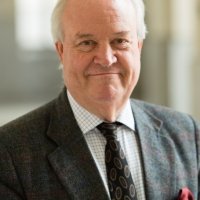Fixing Haiti: MINUSTAH and Beyond
In the month of October there have been important developments in the national and international contexts in which Haitian society evolves. First, and after a long political stalemate, the Haitian parliament confirmed Dr. Garry Conille as prime minister. Conille is a respected, senior development specialist, former UN official and former aide to former President Bill Clinton. The ability of Haitian elites to finally come together and name a prime minister is a positive sign. Similarly, earlier this year Haitians elected a new president, Michel Martelly. As noted by the UN last week, this is the first time in Haitian history that the country has experienced a peaceful transfer of power between one democratically-elected president and another from the opposition.
And on the international front, the UN Security Council renewed the mandate for the UN stabilization mission in Haiti, known as MINUSTAH. The Council reduced the number of military and police personnel assigned to the mission, and noted that since the earthquake, Haiti has made considerable progress even if crime remains a serious problem.
But understanding all of these dynamics requires context. The panel was composed from a number of well-known experts with decades of experience writing about and making policy toward Haiti.
What are the prospects in Haiti for political reconciliation, economic development, and state strengthening? What will it take to address the country’s security crisis and revitalize and construct functioning institutions? Will the country’s new leadership, together with the international community, make progress in addressing Haiti’s longstanding difficulties?
Speakers

Research Professor, Boston University; Co-editor, FIXING HAITI : MINUSTAH AND BEYOND.
Hosted By

Latin America Program
The Wilson Center’s prestigious Latin America Program provides non-partisan expertise to a broad community of decision makers in the United States and Latin America on critical policy issues facing the Hemisphere. The Program provides insightful and actionable research for policymakers, private sector leaders, journalists, and public intellectuals in the United States and Latin America. To bridge the gap between scholarship and policy action, it fosters new inquiry, sponsors high-level public and private meetings among multiple stakeholders, and explores policy options to improve outcomes for citizens throughout the Americas. Drawing on the Wilson Center’s strength as the nation’s key non-partisan policy forum, the Program serves as a trusted source of analysis and a vital point of contact between the worlds of scholarship and action. Read more
